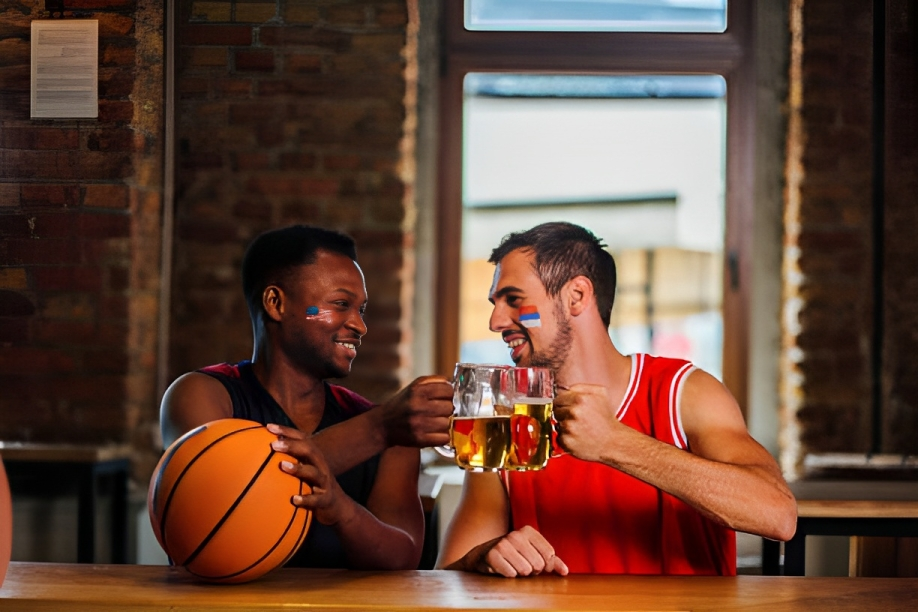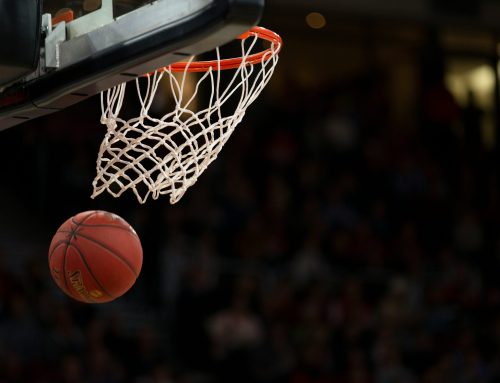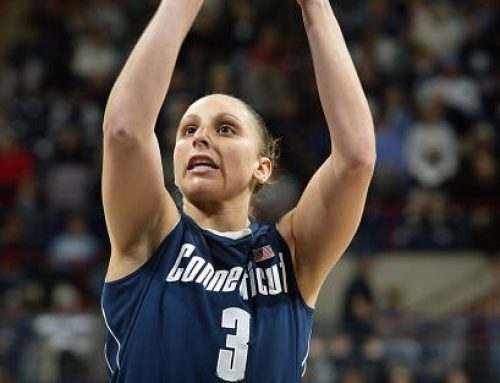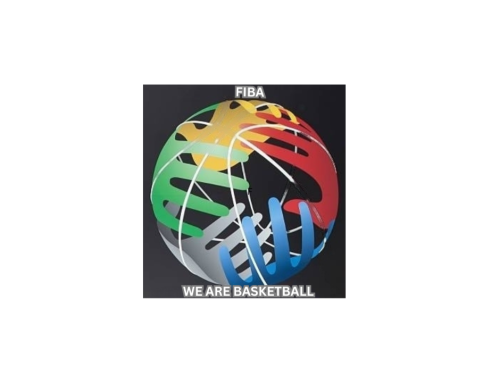
What Basketball Athletes Eat To Conquer The Basketball Court?
Everything needs some energy and the basketball is no exception. Basketball nutrition is one of the things that keeps the players shining and sparkling on the court and throughout their journey. Success on the basketball court isn’t just about skills rather it is what you feed your body.
A good diet helps players in a long way. The beautiful journey of Corey Homicide Williams, an inspiration for many, showcases how the right combination of nutrition and exercise can take an athlete from anonymity to stardom. Check out his remarkable story at Basketball News Australia. From pre-game rituals to post-game recovery snacks, join us as we explore the tasty side of basketball greatness because on and off the court, it’s all about the love of the game and the love of good grub! Spoiler alert: it’s not all protein shakes and kale chips!
A Basketball Player’s Daily Grind
Basketball athletes live a life that revolves around their relentless passion for the game. From early mornings to late nights, their dedication knows no bounds. A day in the life of a basketball athlete is a tale of discipline, hard work, and, of course, carefully curated nutrition.
Nutrition and Athletic Performance
There is a strong connection. Nutrition is a true component of athletic performance. Athletes need to pay great attention to their diet to optimize their energy levels, recovery, and overall physical capabilities. The right nutrition can make the biggest difference.
Morning Fuel
Typically, a basketball athlete’s breakfast includes a balanced combination of protein, carbs and fats. Scrambled eggs with whole-grain toast and avocado, for instance, provide a powerhouse of nutrients to start the day.
Pre-Workout Nutrition
Before hitting the court, athletes need to fuel up efficiently. Protein options are the easiest catch. Like a wholesome sandwich made with whole-grain bread or a whey protein smoothie. Nuts or seeds can also work wonders as a nutritious pre-workout bite.
The Grind: Workouts, Cardio and Strength Training
Basketball athletes require a well-rounded training regimen that includes cardio and strength training to excel on the court. Cardio workouts are a must to build endurance, agility, and overall conditioning. This includes running, sprinting, and interval training.
Strength training is equally important for preventing injuries and improving performance. Compound movements like squats and deadlifts work multiple muscle groups, making the player a powerhouse on the court. Basketball-specific exercises like box jumps and medicine ball throws enhance the game.
Alongside strength workouts, the Ostaregen strength and muscle supplement supports overall athletic performance.
Post-Workout Nutritional Strategies
After an intense game on the hardwood, recovery becomes the name of the game. The vital components of post-workout recovery for basketball athletes are post-workout meals and snacks.
Protein Power: Rebuilding Muscles
Basketball athletes, much like bodybuilders, rely heavily on protein to repair and rebuild their muscles. But why is protein so critical for these court conquerors?
Basketball is a physically demanding sport where all pressure is on muscles. Muscles can rupture during intense movement. And protein can do the recovery because it contains amino acids, the building blocks of muscle tissue. For basketball athletes, protein is all about repairing micro-tears in muscle fibres, making them stronger.
Check out the role of protein in sports nutrition and how much is enough, here.
Protein Sources and Supplements
The sources of protein can be diverse, including:
- Lean meats like chicken and turkey
- Fish, rich in omega-3 fatty acids for anti-inflammatory benefits
- Dairy products such as yogurt and cheese
- Plants such as beans, lentils, and tofu
Supplements can also be a convenient way to meet protein needs. Bundles like the Sports Recovery Bundle and Strength Stack Bundle often include protein supplements, which can be particularly handy for athletes on the go.
Moreover, supplements like 100% Pure Beta Alanine can assist in reducing muscle fatigue and enhancing overall performance.
Carbs for Endurance
Carbohydrates are the fuel that powers high-intensity games. Carbs provide energy during games by:
- Glycogen Storage: Carbohydrates are stored as glycogen in muscles. It can serve as the primary energy source during high physical activity.
- Quick Energy Release: Simple carbs like fruits provide rapid energy, ideal for fast-paced, high-energy moments on the court.
- Sustained Stamina: Complex carbohydrates, found in whole grains and legumes, release energy gradually, offering the necessary endurance throughout the game.
Healthy Fats
Healthy fats are an essential but often overlooked component of a balanced diet for basketball athletes. Here are some reasons why healthy fats are important for basketball athletes:
- Fats provide concentrated energy for low to moderate-intensity sports, preserving glycogen.
- Omega-3 and omega-6 fats support cell membrane and muscle function.
- Dietary fat is crucial for absorbing fat-soluble vitamins, impacting performance.
- Omega-3 fats in foods like fish reduce inflammation, aiding recovery.
- Fats contribute to hormone production for muscle growth and performance.
- Healthy fats promote satiety, reducing overconsumption of unhealthy foods.
Where to Find Healthy Fats?
Here are some sources of healthy fats that basketball athletes can include in their diets.
- Avocado
- Almonds
- Walnuts
- Flaxseeds
- Salmon
- Mackerel
- Nut butter
Mastering Portion Control and Caloric Intake
On the court, the basketball athletes seem to glide effortlessly with their stamina unshakable. It’s all due to portion control and calorie management.
The Weight Management
Portion control is at the heart of maintaining the ideal weight for basketball athletes. It’s about understanding how much to eat and when to eat it. It caters to optimizing performance by ensuring the body gets the right nutrients in the right amounts.
For a readymade weight loss meal plan and easy delicacies to consume, go and read our 5 delicious weight loss recipes.
Portion Sizes for Macronutrients
Here’s a general macronutrient portion sizes for athletes:
- Carbohydrates: 45-65% of daily calories
- Proteins: 15-25% of daily calories
- Fats: 20-35% of daily calories
Tools and Methods for Determining Caloric Needs
- Total Daily Energy Expenditure (TDEE): This takes into account your activity level. Basketball athletes have a high TDEE due to their rigorous training and frequent games.
- Dietary Assessment: Keeping a food journal helps track caloric intake, ensuring you’re meeting your daily requirements.
- Nutrition Apps: In the digital age, several apps and tools are available to calculate and monitor caloric needs based on your individual characteristics and activity level.
Sample Meal Plan for Basketball Athlete
- Energizing Breakfast: Avocado Toast with Smoked Salmon
- Sustaining Lunch: Grilled Chicken Salad
- Smart Snacking: Greek Yogurt with Berries
- Dinner for Rejuvenation: Lean Beef Stir-Fry
Electrolytes and Hydration: A Match Made in Basketball Heaven
Basketball can cause players to sweat buckets. Along with that sweat goes not only water but also crucial electrolytes like sodium, potassium, and magnesium. These electrically charged ions are vital for various physiological functions, and maintaining the right balance is essential for peak performance.
Role of electrolytes:
- Electrolytes facilitate muscle function, preventing cramps.
- They regulate hydration, ensuring fluid retention during physical activity.
- Electrolytes are essential for accurate nerve signalling in sports performance.
Try Activ Nutrition’s electrolyte mix to get the most out of your hydration routine.
How can basketball athletes stay hydrated?
Staying hydrated isn’t merely about sipping water during timeouts. Rather it’s a comprehensive strategy that ensures optimal fluid balance and electrolyte support. Hydration is crucial for athletes. Water needs can vary, but generally aim for at least 8-10 cups (64-80 ounces) of water per day, plus more to compensate for sweat loss during exercise.
Water alone falls short in providing necessary electrolytes. Therefore, electrolyte-rich fluids or sports drinks are handy before, during the game and after the game. This will replenish electrolytes and fluids.
For a deeper dive into the world of electrolytes, check out Adrenal Switch Magnesium, a supplement that can help basketball athletes maintain their electrolyte balance.
Diet of NBL/WNBL Players
What really goes into the plates of those who rule the basketball court, the NBL and WNBL players? Here is the sum-up dietary preferences of some professional players who left their mark on the history and the game.
Andrew Bogut
Andrew Bogut has always placed importance on a balanced diet. He also dropped 10 kilograms (22 pounds) ahead of the NBA season by cutting sugar from his diet. Bogut’s physique became flatter, his face more angled, and his weight dropped from 275 to the low 250s. He eliminated processed carbs and refined sugars from his diet, resulting in improved agility and stamina. Bogut’s weight loss plan included spending more time with his kids and drinking more beer.
For more insights into his journey, check Andrew Bogut- The Best Center Ever.
Patty Mills
Mills transformed his physique by cutting his body fat percentage from 12-13% to 5.8% by overhauling his diet and workouts. He eliminated processed carbs and refined sugars from his diet, which helped him become a more explosive guard on the court. Then he also gave up his number one vice, strawberry milk, and an Australian staple, Vegemite. His commitment to his diet and workouts has made him a significant factor for the San Antonio Spurs.
Learn more about his incredible journey; read Patty Mills- The Journey of Indigenous Aussie to Glory.
Liz Cambage
In an interview with ESPN, Cambage mentioned that she maintains a plant-based diet, a normal sleep schedule, and regular exercise as part of her lifestyle and routine. She places a strong focus on high-quality proteins and a balanced intake of micronutrients to support her performance. Her dietary choices reflect her commitment to peak physical and mental conditioning.
Nikola Jokic
The Serbian sensation, Nikola Jokic has lost weight by cutting out sugary drinks (Coca-Cola) and carbohydrates from his diet and eating six small and moderate meals a day consisting of chicken, greens, rice, salad, and protein shakes. Jokic’s diet plan also includes boiled chicken, fish, fruits, and vegetables, and he has eliminated all processed foods from his diet and limited his intake of carbs.
Trae Young
Young put on 15 (pounds) of lean muscle in eight weeks by drinking five protein shakes a day and cutting out chicken strips and pizza from his diet. Young’s diet plan mostly includes lean proteins. He also drinks gallons of water a day to stay hydrated.
Lauren Jackson
Lauren Jackson eats mostly healthy and fresh food. During the game season, she can pretty much eat whatever she wants. She also drinks litres and litres of water after a workout to stay hydrated. Before games, she loves eating pasta with marinara sauce, and she has a huge weakness for McDonald’s, but she also enjoys low-fat healthy snacks.
For a unique twist, check out Lauren Jackson and a review of Australian CBD Oil in supporting athletic performance.
Ben Simmons
In an article by Vigourfact, Simmons’ diet plan includes a breakfast of eggs, whole-grain pancakes, and juice, a pre-training meal of a protein smoothie made from banana, egg, almond milk, and berries, lunch of chicken, rice, and veggies, a pre-workout meal of a protein shake and almonds, and dinner of steak or chicken, veggies, and rice.
Stephen Curry
Curry’s meals are usually healthy and clean. His diet is overall well-balanced and includes all the essential minerals and vitamins that an athletic body needs. Curry also has an uncommon food quirk of consuming carbs before a game. He loads himself up with junk before the game, such as pasta, popcorn, sandwiches, or peanut butter, which he believes takes him back to his childhood days.
Russell Westbrook
Westbrook starts his day with a big breakfast that includes fresh fruit, juices, eggs, hash browns, avocado toast, pancakes, and waffles. His meals mostly consist of fish, such as barramundi or snapper, a side of wholesome carbs, and steamed greens. Westbrook likes to snack on smoothies, yoghurt, parfaits, and his childhood favourite Payday peanut butter bar.
James Harden
Harden favours fish, fresh fruit and vegetables, and high-protein, low-fat meats like turkey, chicken breast, and lean beef. He prefers real meals and avoids junk food at all costs. For breakfast, he usually has three fried eggs, five strips of turkey bacon, six cantaloupe slices, and a smoothie. He has also mentioned eating eggs, potatoes, sausage, toast, or a breakfast burrito.
Discover more about the outstanding Basketball players of Australia, who embody the essence of basketball excellence.
FAQS Related To Basketball Nutrition
What should be in a basketball nutrition plan?
A perfect basketball nutrition plan should include carbs, proteins, and healthy fats with plenty of fruits/vegetables.
What are the specific nutrition needs of basketball players?
Basketball players require a diet that emphasizes energy, so focus on carbohydrates for quick bursts of energy, lean proteins for muscle recovery, and hydration to stay on top of your game.
How many calories should basketball athletes consume in a day?
The calorie intake for basketball players varies, but on average, it’s like 2,500 to 3,500 calories per day.
What are the nutritional requirements for basketball?
Basketball players need a combination of macronutrients and micronutrients with hydrating beverages for optimal performance.
What’s an ideal basketball breakfast meal to kick-start the day?
A nutritious breakfast for basketball players might include oatmeal with fruits, a smoothie with protein powder, or whole-grain toast with peanut butter for a good mix of carbs and protein.
Ending Remarks
The Basketball athletes conquer the court not only with their skills but also with their dietary choices. As they sprint down the court, make those crucial passes, and sink the three-pointers, their diets are the silent partners ensuring they have the energy, stamina, and resilience to rule the basketball court.
Visit Activ Nutrition Store to explore sports supplements that can complement your Basketball Nutritional journey.
Start today with a slam dunk on your plate!



